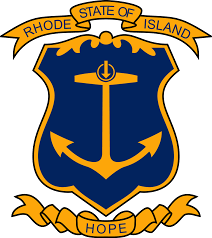Rhode Island surrogacy laws & gestational process guidelines

- Is gestational and traditional surrogacy legal in Rhode Island?
- What specific surrogacy requirements apply in Rhode Island, if any?
- What must be included in a legally valid Rhode Island surrogacy contract?
- What factors influence the cost of surrogacy in Rhode Island, including s compensation and agency fees?
- What influences how much surrogacy costs and surrogates get compensated in Rhode Island compared to other states?
- How friendly is LGBTQ+ surrogacy in Rhode Island?
General Surrogacy context in Rhode Island
Currently, there are no surrogacy laws in Rhode Island. Every surrogacy case goes through the Chief Judge of Family Court in Providence. Because all surrogacy cases are handled by the same person, the legal process of surrogacy in Rhode Island is very consistent.
Although the following guide can give you a better understanding of the general rules and regulations of surrogacy in Rhode Island, it is not meant to be used as legal advice. It is important to consult with an experienced attorney to guide you through your unique journey.
Below is a list of some of the most frequently asked questions about surrogacy in Rhode Island.
Is Gestational Surrogacy Legal in Rhode Island?
Yes. Surrogacy is legal in Rhode Island, although there are no laws that expressly permit, prohibit, or regulate it. Instead, all surrogacy cases are taken to the same Chief Judge of Family Court.
Despite the lack of Rhode Island surrogacy laws, surrogacy is still commonplace in Rhode Island.
Is Traditional Surrogacy Legal in Rhode Island?
This is unclear. As with gestational surrogacy, there are no traditional surrogacy laws in Rhode Island. In most cases, traditional surrogacy is treated like an adoption, and requires that the surrogate wait at least 15 days after the child’s birth before she can terminate her parental rights and provide her consent to the adoption.
Legally, traditional surrogacy is a complex process and is very rare. Most surrogate attorneys will only complete gestational surrogacies.
Is Compensated Surrogacy Legal in Rhode Island?
Yes. Compensated surrogacy is legal when pursuing gestational surrogacy. Intended parents are permitted to compensate the surrogate for her time and expenses.
In addition to their base pay, Surrogates are compensated for their time, the medical risks they accept, and the list of expenses below:
- Mock cycle compensation
- Embryo transfer compensation
- Starting medication compensation
- Monthly allowance for miscellaneous expenses
- Monthly Housekeeping budget
- Maternity clothing budget
- Medical expenses
- Travel to and from clinic/hospital
- Lost wages if applicable
- Child care if bed rest is required
- Term life insurance
- Medical insurance
- Independent legal counsel
- Psychological counseling
- Other depending on agency
Compensated traditional surrogacy; however, has been prohibited in past cases because they are legally viewed as adoptions. Therefore, it is likely that such contracts may be found unenforceable if challenged in a Rhode Island court.
Creating a Rhode Island Surrogacy Contract
Because there are no surrogacy laws in Rhode Island, there are no specific requirements as to what must be included in the contract. However, intended parents and their surrogates must be represented by separate surrogacy attorneys to ensure their individual rights and interests are protected.
These attorneys will negotiate a contract that addresses the following:
- The rights and responsibilities of both parties
- The potential risks and liabilities for both parties
- Agreement on sensitive issues like selective reduction and termination
- Surrogate compensation and other financial information, like surrogacy insurance
- How the intended parents will establish their parental rights
- And more
Once the intended parents, the surrogate and her spouse (if applicable) consent to and sign the surrogacy contract, the medical process of surrogacy can begin.
Determining Legal Parentage in Rhode Island
There are no laws on surrogacy in Rhode Island that mention pre-birth parentage orders. However, the judge, who sees all surrogacy cases, has consistently granted pre-birth orders to all intended parents in gestational surrogacy agreements, regardless of marital status, sexual orientation, and regardless of whether or not you have a genetic link to your child.
Most Common FAQ about surrogacy in Rhode Island
Below is a list of some of the most frequently asked questions about surrogacy in Rhode Island:
Are Surrogacy Contracts (Whether Compensated or Altruistic) Enforceable in Hawaii?
Since Hawaii does not have a statutory rule on this, there is not a specific set of guidelines for when a judge may uphold the validity of a surrogacy arrangement. However, since a surrogacy contract is like any other legal contract, it is presumed that the contract would be enforceable.
Are There Any Particular Laws for Parents Outside the U.S. Who Complete a Surrogacy in Hawaii?
No. There are no surrogacy laws in Hawaii that specifically apply to international intended parents. It is important, however, that intended parents from another country speak with an immigration lawyer to ensure they follow the proper legal steps for taking their child home.
What Happens in Cases Where Intended Parents Use a Donor Egg, Sperm, or Embryo?
In Hawaii, intended parents who use a donor egg, sperm, or embryo must complete an adoption to protect their parental rights. There are no laws governing the rights of egg, sperm, or embryo donors, so it is important to consult with an experienced surrogate attorney to ensure you take the necessary steps to establish your parental rights.
Same Sex surrogacy in Rhode Island
Q: Is Same-Sex Surrogacy Legal in Rhode Island?
Yes. Same-sex couples and LGBT+ intended parents have the same legal rights and will experience generally the same surrogacy process as opposite-sex couples, with the exception of likely requiring an egg donor or sperm donor to complete the IVF procedure.
Are There any Additional Laws Impacting Same-Sex Parenting in Rhode Island?
No. There are no additional laws impacting same-sex parents in this state.Reproductive law Practitioner in Rhode Island
Michael Grant, Esq.
Cranston, RI
mbgesq@aol.com
(401) 219-0400
